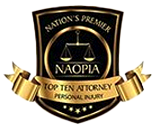When you have been injured at work, you need to know whether your employer will honor his obligation to provide you with workers’ compensation benefits.
Some employers honestly care for their employees, and do what they can to help them in these types of situations. However, other employers aren’t as understanding when it comes to paying for their employees’ recoveries and time away from work. In addition, workers’ compensation insurance companies tend to be even less understanding and more brutal than employers when it comes to paying for workplace accidents. They’ll try to deny your claim by either blaming you for the accident, saying the injury isn’t as bad as you’re making it out to be, or even suggesting that the accident didn’t occur at work so it isn’t covered under Pennsylvania workers’ compensation laws.
Sometimes these tactics have been known to work. But you can still get the satisfaction of beating the insurance company bullies at their own game, while also securing the benefits you deserve. To do this, you need thorough documentation to support your version of what happened at the time of the incident. In the hands of an experienced attorney, this documentation will allow your lawyer to put the smoking gun in your employer’s hands and make sure that he takes responsibility for your injuries. But first, you need to know what documentation is relevant.
Proving Your Injury Through Proper Documentation
The majority of evidence needed for a work injury compensation claim needs to be gathered at the time of the incident. Although this can sometimes be difficult, any evidence gathered after the fact won’t hold as much weight as first-hand account testimonies. This is why it is extremely important to know exactly what to do at the time of an injury, so you can gather the information you need as quickly as possible.
In the event of a workplace accident, you need to:
- Get your boss involved. The more time that passes between sustaining an injury and informing your boss of the situation can increase doubt about the validity of your claim. As soon as you’re injured, make sure your boss is immediately informed of the situation. Follow your workplace procedures to file an injury report. If you wait, questions could arise about the legitimacy of when and where the accident actually occurred
- Gather eyewitness accounts. If possible, take statements from fellow employees who witnessed the accident in order to verify your account of the incident.
- Secure a medical report. No matter how severe your injury may be, make sure you have it verified by a doctor, and keep copies of the doctor’s notes (make sure the copies include the date, doctor’s signature, diagnosis, and treatment suggestions).
- Keep track of your medications. If narcotics or sedatives are needed for pain, make sure you keep copies of the prescriptions as well as pharmacy notes on how the drugs may affect you. Not only will this help prove the severity of your injury, but it will also provide proof of why you may not be able to return to work.
- Keep treatment documentation. If physical therapy or long-term treatment is required, gather statements or copies of paperwork illustrating how long the treatment will last and how much time you’ll need to take off work.
- Contact an experienced injury lawyer. A good injury attorney can not only get your claim started quickly, but he can also help you gather time sensitive evidence such as security tapes, company safety reports, and maintenance logs that can help make your claim a success
Proof Before Recovery: Fighting for What’s Best for You
Many of us fund that our employers like to act as our best buddies when they’re profiting from our toil. When a workplace injury threatens to drain money from the business, our “best buddy” bosses suddenly forget our names and faces.
Do you think employers need to be help more accountable for their employees’ safety and security? Should the Occupational Safety and Health Administration create harsher penalties for employers and better security rules for employees when it comes to workplace safety? Let us know how you feel about work safety by sharing your thoughts, stories, and opinions in the comment section provided. We’re eager to learn more about how you feel about your job’s ability to keep you safe, as well as how your employer handles workers’ comp claims.
It’s unfortunate that as a victim you may be forced to fight in order to get the benefits you already deserve. However, if you aren’t willing to fight—or at least take precautions such as hiring a lawyer—you may be left out in the cold. Let Gibbons & Crichton, Personal Injury and Accident Lawyers, work on your behalf to the fair compensation you deserve after a workplace injury. Contact us today!














